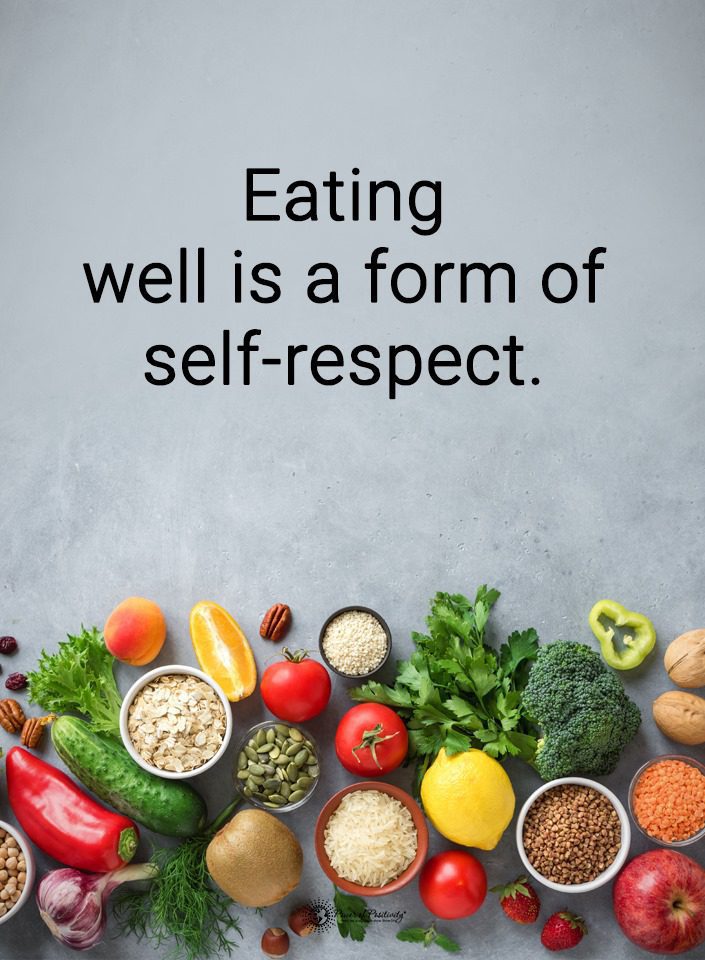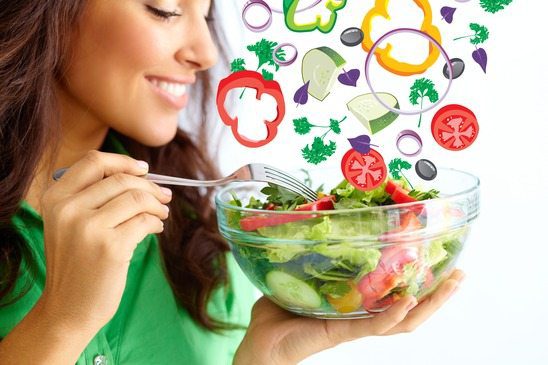They say that you are what you eat. That fact may ring even more true than you think! As it turns out, the food you put into your body will affect many of its functions, including ones that could moderate, stabilize, or improve your mood.
This is why eating healthily can be essential for managing mood. Even in those with mental illness, changing diet can help relieve certain symptoms and make the disorders more manageable on the whole.
While they aren’t cure-all solutions for negative emotions and experiences, eating mindfully and well can be great for your body and mind all at once. But what options do you have? Here’s how nutritionists reveal 8 foods that will improve your mood.
1. Leafy Green Vegetables
Leafy green veggies are fantastic for your health, and they’re also good for your mood. This is thanks to a vitamin in them called folate, a B vitamin, says certified nutrition specialist Cathy Wong.
Research indicates that individuals who have depression tend to have lower folate levels in their blood than those without the disorder. Folate deficiency can be a cause for multiple problems with neurotransmitters associated with mood, including:
- Dopamine
- Noradrenaline
- Serotonin
Multiple other studies find links between vegetables and depression risks and symptoms, which is nothing new. It’s fairly common for research to reveal more positive outcomes in the mood for those who eat lots of vegetables. As such, though more research is needed regarding folate and its links to mood, it’s safe to assume that eating vegetables will help more than harm.
 Here are some leafy green vegetables you can try!
Here are some leafy green vegetables you can try!
- Artichokes
- Avocado
- Broccoli
- Edamame
- Lentils
- Okra
- Spinach
- Turnip greens
2. Chocolate
Chocolate tastes great and is a good way to get an immediate mood boost. This is especially true for dark chocolate, which is essentially the most “pure” form of the treat that holds most of its positive components. Here are some reasons chocolate can boost mood:
· It Has Feel-Good Compounds
Multiple different compounds within chocolate can help improve overall positive thinking and mood. This includes theobromine, caffeine, and N-acylethanolamine.
· It’s Packed With Flavonoids
Flavonoids provide countless benefits to health, and one of these benefits is seen in inflammation reduction. This is done by increasing blood circulation to the brain, which helps regulate mood and boosts the health of the brain, according to studies.
· It’s Pleasurable
Chocolate ranks high on the hedonic rating scale. This means that its texture, taste, and scent can all help create a positive mood.
· It’s Fuel
The brain loves chocolate because it’s a quick, easy fuel source that it can use for a significant period of time. It perks you right up with that energy, says research!
Not sure how much chocolate is too much? Certified Dietician Nutritionist and Registered Dietitian Jaclyn London recommends between 150 and 200 calories worth of the stuff per day, or the equivalent of about an ounce.
3. Fatty Fish
Fatty fish is full of healthy fats, especially omega-3 fatty acids, which are awesome for the brain. This is why the president of both the Australian Alliance for the Prevention of Mental Disorders and the International Society for Nutritional Psychiatry Research, Felice Jacka, Ph.D., highly recommends fish for fighting depression. Here are some facts that support this:
- Fatty fish contain two different kinds of omega-3 fatty acids. These are eicosapentaenoic acid (EPA) and the more commonly known docosahexaenoic acid (DHA). Both have been found in studies to reduce depression symptoms and levels.
- Omega-3 fatty acids work by aiding the brain’s fluidity, specifically in the cell membrane. This can help the brain with its cell signaling and development, according to research.
- Fish oil contains lots of omega-3, and some studies have found that consuming fish oil can reduce scores of depression and its symptoms.
4. Berries Can Improve Your Mood
Just like how vegetable consumption is linked to lower vegetable risk, similar results have been found with fruit consumption. Registered Dietitian Katey Davidson attributes this to the antioxidants you can find thriving richly in them, and berries are some of the best sources for those components.
Antioxidants are potent, as they fight inflammation that can contribute to mood disorders like depression. Combined with the phenolic compounds in berries, they fight off oxidative stress caused by a compound imbalance within the body. This ultimately results in a more healthy body and better positive thinking.
Berries with a deep blue-purple color are rich in a pigment called anthocyanin. These are the absolute best sources of the antioxidants and compounds you seek, so try to opt for berries like blueberries or raspberries.
5. Fermented Foods
Fermented foods are famous for their benefits to digestive health, but they can also work wonders for the mood. In general, gut health is connected to mental health in surprising ways, say studies, but that’s not the only reason fermented meals help your brain. Here’s how fermented foods wind up, helping your positive thinking:
· Step 1
Food is fermented through the process of using live bacteria to convert sugars into different components, like acids and alcohols.
· Step 2
During fermentation, probiotics, which are live microorganisms, are made. These probiotics are capable of doing several positive things, like aiding healthy gut bacteria growth and boosting serotonin levels.
· Step 3
The serotonin levels in your body increase. Serotonin is a feel-good hormone instrumental in positive thinking, aiding things like libido, stress response, mood, and even appetite. 90% of the serotonin you have comes from the gut, hence benefiting the probiotics in kefir.
Here are some options for fermented foods that you can eat to improve your mood:
- Kombucha
- Kimchi
- Sauerkraut
- Yogurt
6. Nuts and Seeds
Nuts and seeds have a lot of great things going for them. They’re packed with fiber, healthy fat, protein, and more. But it’s not just these things that make nuts and seeds ideal for boosting mood, says Davidson. Here are some other science-backed reasons they work:
· They Contain Tryptophan
Tryptophan is an amino acid – or a protein – that helps the body produce serotonin, a feel-good and calming hormone. Nuts contain significant amounts of this amino acid, helping positive thinking along the way.
· They Are Mineral-Rich
Being deficient in certain minerals has been linked to noticeably higher risks and rates of depression and similar disorders. Two of these minerals, selenium and zinc, are richly found in nuts and seeds.
· They Are A Mediterranean Staple
For years, Mediterranean diets have been touted as excellent for brain health, both when it comes to maintaining long-term cognitive function and positive mood. Nuts and seeds are a strong staple of these diets, contributing to the results found with that kind of meal plan.
Of course, the research also speaks for itself. In a study conducted over an entire decade, thousands of participants experienced a 23% lower depression rate when consuming nuts. Here are some nuts and seeds to try out:
- Almonds
- Brazil nuts
- Cashews
- Peanuts
- Pine nuts
- Pumpkin seeds
- Sesame seeds
- Sunflower seeds
- Walnuts
7. Whole Grains
Whole grains are the healthiest way to get filling, fuel-providing carbs into your body without sending your blood sugar levels into turmoil. They’re also a wonderful way to boost mood, and Wong recommends them thanks to their high content of valuable B vitamins.
Here are some of the notable B vitamins in whole grains and what they do:
- B1, or thiamin, changes glucose into energy.
- B5, or pantothenic acid, produces the hormone acetylcholine to aid memory and learning.
- B6, or tryptophan, which we’ve already discussed and which makes serotonin
- B12, which the body needs for numerous neurotransmitter functions and creations
One of the better options for whole-grain goodness is steel-cut oats. They pack lots of fiber, which helps you digest them in an easier and healthier way for your blood sugar. If you eat them at breakfast, you’re likely to feel good all morning thanks to how they maintain your glucose at a healthy balance, say studies.
Not sure what whole grains to get, other than steel-cut oatmeal? Check the ingredients of the packs you’re interested in. For every 5 grams of carbs, there should be a minimum of one gram of dietary fiber. Any less, and it’s not a whole grain. Try:
- Amaranth
- Brown rice
- Bulgur
- Millet
- Quinoa
- Wild rice
8. Drinks
Sure, drinks aren’t technically “food,” but they’re easy ways to incorporate all sorts of mood-boosting benefits into your body. Here are some great drinks to get your brain in tip-top shape, but do note that they need to be consumed in moderation:
· Caffeine
Caffeine has a special compound known as adenosine. It works by attaching itself to the brain’s receptors, reducing tiredness to boost your concentration and alertness. This also, in turn, results in the release of feel-good hormones, according to Davidson. A study actually found that individuals who drink coffee with caffeine experience a notable mood boost compared to those with a placebo.
· Wine
Consuming moderate and reasonable amounts of alcohol can add miles to your positive thinking, as long as you keep it to one glass a day. The fact that it helps your heart, maintains cognitive strength, and increases your longevity is a great bonus!
· Kefir
Registered Dietitian Nutritionist Stefani Sassos particularly recommends kefir for its probiotic qualities, as it both provides the benefits of fermented foods while helping the immune system and digestion.
 Final Thoughts On Some Foods That Have The Ability To Improve Your Mood
Final Thoughts On Some Foods That Have The Ability To Improve Your Mood
It’s easy to roll your eyes at the concept of eating better for your brain. Naturally, it can be pretty impressive to think that eating different kinds of food may help you feel better every day. That’s because what you eat changes the way your body functions. If you fuel your body with positive things, you’ll get positive returns. So eat well, and you might be surprised by how much better you feel!
As always, it is worth noting that food alone cannot cure or remove mood disorders like major depressive disorder, bipolar disorder, or dysthymia. If you are experiencing a severely negative mood, do not attempt to “treat” yourself by eating certain foods! See a mental health professional to discuss your problems, as you may need a more medical form of treatment. But for moderate depression or mood swing, you can improve your mood with these smart food choices.





















